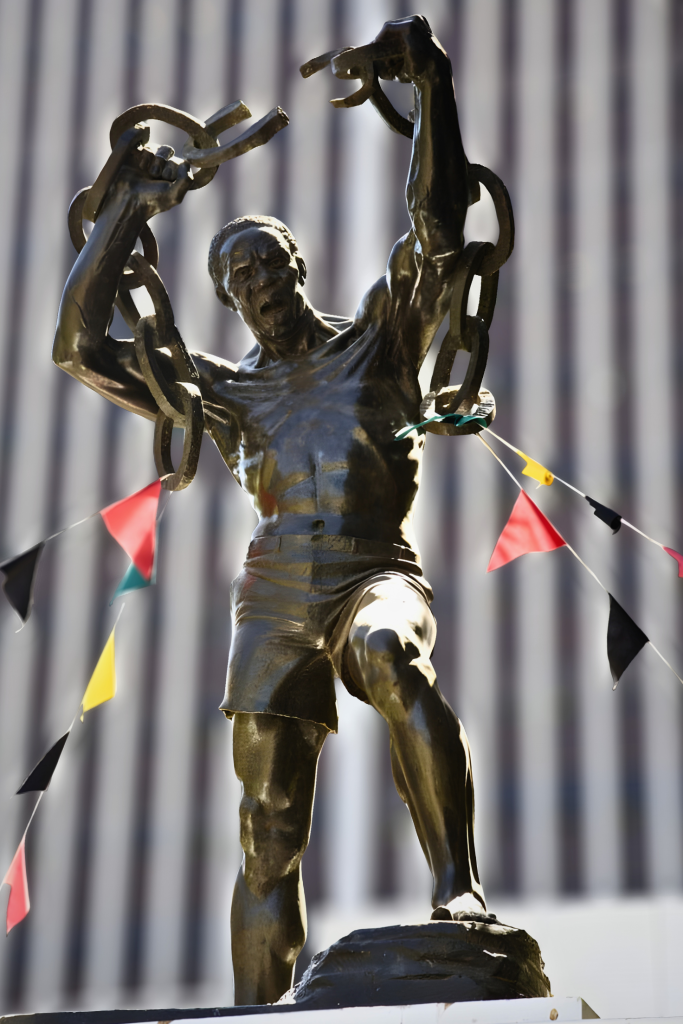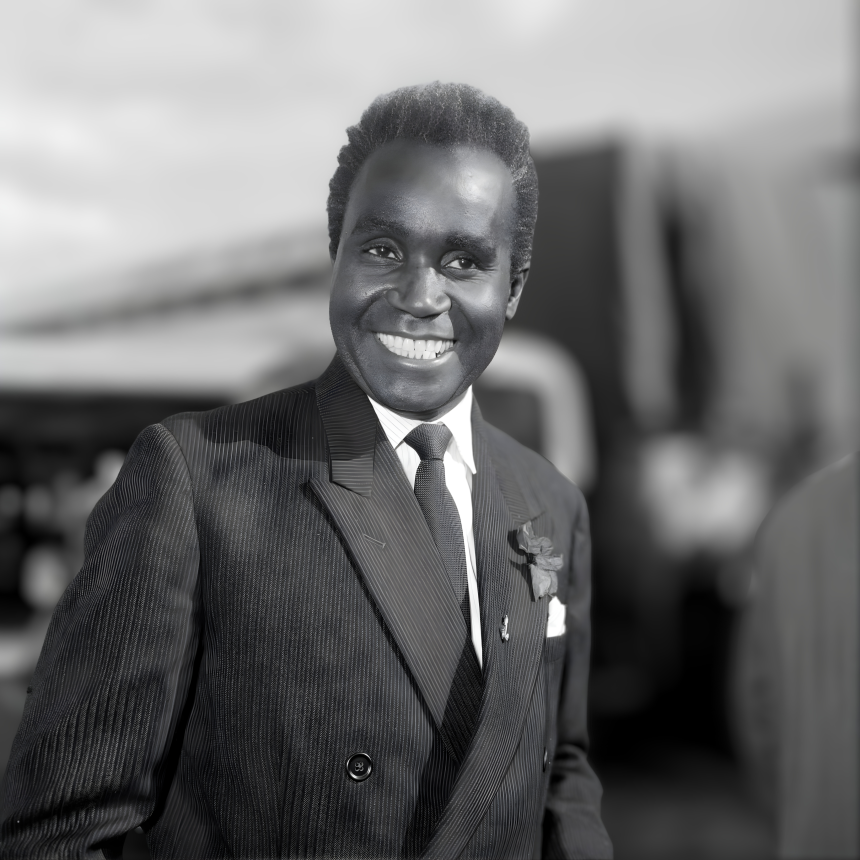From colonial chains to Hakainde’s gagging, we are moving in circles.
By Brian Matambo
Independence is not a date. It is a destiny of freedom.
On 24 October 1964, the Zambian flag rose high over a free nation for the first time. Our forefathers had wrestled freedom from an empire that treated us as subjects, not citizens. Independence was not merely a change of flag; it was a promise that Zambians would govern themselves with dignity, equality and justice.
Zambia’s story is one of courage, resilience and hope. From the chains of colonial rule to the dawn of freedom in 1964, Zambians have always yearned for liberty, not only political but economic, social and spiritual. Today, as the nation stands at a crossroads, the call for a Second Independence echoes through the nation. This is not a rebellion. It is a rebirth.
Let us take a walk down memory lane and reflect on what our forefathers fought for. Under British colonial rule, Northern Rhodesia lived under the heavy hand of racial segregation. In housing, education and employment, the colour of one’s skin determined one’s worth. Indigenous people dug copper from the earth, but never owned the mines. They paid high taxes yet had no say in governance.
When the Central African Federation was imposed in 1953, the fear of permanent white rule spread like a fever. From that fear rose nationalist movements: the ANC under Harry Mwaanga Nkumbula, the ZANC under Kenneth Kaunda and later UNIP, all united by a single cry for self-rule and dignity. They fought for equality, for access to education, for fair pay and for the right to speak. After years of arrests, protests and blood, the dream was born. On 24 October 1964, under a sky bright with promise, Zambia stood proud and free.
Those first years of independence were filled with hope. Schools multiplied. From barely 2,500 Africans in secondary education in 1960, there were over 54,000 by 1971. The University of Zambia opened its doors in 1965. The young state reclaimed mineral rights, built roads, hospitals and schools, and invested in health, transport and communication. Zambia became a fortress of liberation, giving sanctuary to freedom fighters from Namibia, Angola, Mozambique, Zimbabwe and even South Africa.
Yet what began as freedom soon drifted into control. Kenneth Kaunda, the founding father, believed unity required a single voice. By 1973 he had declared Zambia a One-Party State, arguing that it would have been disastrous to go multiparty. In seeking unity, he suffocated diversity. Newspapers were tamed, opposition was banned and those who questioned authority were imprisoned. Liberation slowly turned into obedience.
By the early 1980s, copper prices collapsed and the economy followed. Queues for sugar and cooking oil grew longer as the speeches grew louder. The people’s patience wore thin. By 1991, the call for change became irresistible. Out of that cry rose the Movement for Multi-Party Democracy. Frederick Chiluba, a trade unionist with polished shoes and promises of renewal, became president. He stood before the nation and declared, “The hour has come.” Zambia believed him.
But in 1996 he amended the Constitution to bar Kaunda from contesting elections. The same document that had given hope was now used to silence an opponent. Power preached democracy but practised exclusion.
When Levy Mwanawasa took office in 2002, he came with a lawyer’s precision and a reformer’s heart. He fought corruption and brought a measure of order, but when his constitutional plans met resistance, he called his critics traitors. Once again, the voice of authority disguised itself as law.
Rupiah Banda, who followed him, was different, gentler, reflective. Handing power to Michael Sata, he reminded the nation, “Power is not forever.” It was a lesson few took to heart.
Sata, fiery and fearless, spoke for the working class and the poor. He declared that a good Constitution is the one that stands against the president himself. Those words captured the essence of what Zambia had lost, a system strong enough to protect citizens even from their rulers. Yet fate cut him short before he could finish what he started.
After Sata’s death, Edgar Lungu took the mantle and in 2016 signed the Constitution Amendment Bill at Heroes Stadium, calling it a people’s Constitution. The people cheered, but the concentration of power never truly shifted. The presidency remained the sun around which every institution revolved.
Now under Hakainde Hichilema, the circle tightens once more. With Bill 7 Hichilema seeks to expand Parliament and alter electoral rules, a move critics fear will entrench executive control. With Bill 13, on the other hand, Hichilema wants to use the Lands and Deeds Amendment, through the Chief Registrar, to cancel land titles without judicial oversight, giving him unfettered powers over land. For farmers, investors and families who have worked their land for generations, it feels like history repeating itself, a quiet return to colonial dispossession under local hands, albeit dress in white gloves.
Even the digital age has not spared the spirit of control. Before independence, colonial rulers arrested Africans for agitating against the Crown. Today, citizens are charged with defaming the President. Only this week, the Patriotic Front/Tonse Alliance Secretary General Raphael Nakachinda was jailed for “defaming the President.” The cyber laws criminalise false information, a term so vague it can mean anything the government chooses. Phones are tapped, journalists harassed and online dissent punished. From colonial decrees before 1964 to modern surveillance under Hichilema’s regime, the script remains the same: silence the citizen, protect the “throne”.
But repression is not our only wound. Tribalism now stalks our politics like a shadow. Where once the cry was “One Zambia, One Nation,” today ethnic loyalty outweighs merit, fairness or justice. Jobs, contracts and opportunities are distributed along tribal and political lines. The unity our fathers died for is under siege from within.
Meanwhile, new colonisers walk among us, not in boots but in suits. They arrive as investors promising development, yet too often take our land, our minerals and our future, leaving only scraps for Zambians. Mines, farms and key industries are dominated by foreign corporations. We export our copper and import poverty. We watch skyscrapers rise abroad while our schools collapse and our hospitals run dry. And somehow Hichilema parades his praise singers to shout, “kwenyu! Kwenyu!”
True independence requires economic sovereignty. Instead, Zambia remains a resource colony. Foreign companies dominate copper, agriculture and even retail. They profit from our labour and wealth while leaving the majority impoverished. Our leaders cut ribbons for investors while the youth queue for jobs that never come. Schools are underfunded. Hospitals lack medicine. Our rivers and minerals are exploited to build prosperity abroad, not at home. This is dependency masquerading as development. The foreign-owned mines even pollute our rivers without fear of consequence.
And so, the call for a Second Independence grows louder with every passing day. It is not a call to arms but a call to conscience. It rises from the farmer who fears losing his land, the student who cannot find work, the journalist threatened for truth, the opposition member banned from assembling, and every Zambian who feels democracy slipping through their fingers. This movement does not seek to destroy. It seeks to restore.

The Second Independence is not just for us. It is for our children, and for their children’s children. It is the inheritance we owe to every unborn Zambian who will one day ask what we did with the freedom our fathers fought for. This moment calls for oneness of heart and mind. It demands that every citizen, every leader, every believer and dreamer step beyond self-interest and work towards one purpose: the restoration of the Republic. Politicians must set aside personal ambitions. The Church must speak truth to power. Civil society must rise with courage. Traditional leaders must defend their people’s land. Only together can we rebuild what has been broken.
Across the nation, a new awakening has begun. Two movements in particular have captured this spirit: Ichabaiche led by Honourable Binwell Mpundu, nd the Movement for National Renewal (MNR) led by John Sangwa. Both movements stand not in rebellion but in renewal, seeking to give the people back their power and their pride.
This is a critical moment in Zambia’s history. We cannot afford silence, nor can we remain spectators. President Hakainde Hichilema’s government has turned the promise of freedom into a mechanism of fear, using laws, land and information as instruments of control. The call for Independence 2.0 is therefore not nostalgia; it is necessity. It is the people’s answer to betrayal. To achieve it, we must reverse the excesses and injustices of this administration, dismantle the structures of control that threaten democracy, and build a system where freedom is not granted by the state but guaranteed by the Constitution.
The second liberation will not be fought with guns, but with unity, courage and conscience. It will be won when Zambians refuse to be divided by tribe or bribed by politics. It will be secured when young people demand accountability, when the Church refuses silence, when the courts stand for justice, and when the media becomes the people’s shield again.
Our parents fought to free Zambia from colonial rule. It is now our generation’s duty to free Zambia from corruption, complacency and moral decay. If we trade our values for political favour or our resources for quick cash, we will wake to find independence existing only on paper. Freedom must be defended, not remembered.
History has already left us its lessons. Kaunda taught that Africa must be free. Chiluba said, “The hour has come.” Mwanawasa warned that corruption is treason against the people. Banda reminded us that power is temporary. Sata urged that a good Constitution must restrain even the president. Lungu set a people’s Constitution in motion. Now the people themselves must finish the work.



Leave a Reply